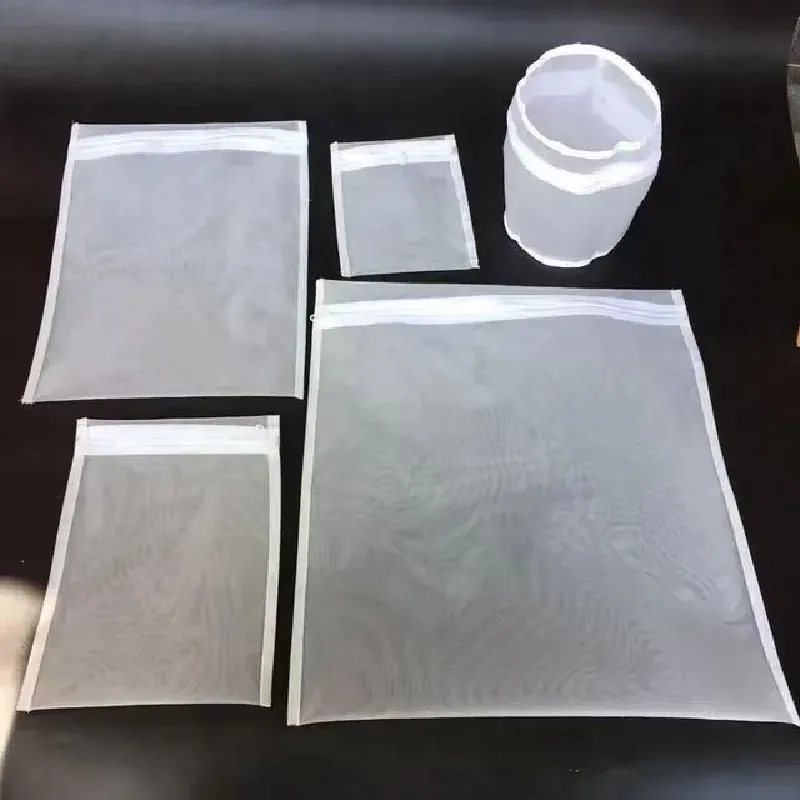-
 ആഫ്രിക്കൻ
ആഫ്രിക്കൻ -
 അൽബേനിയൻ
അൽബേനിയൻ -
 അംഹാരിക്
അംഹാരിക് -
 അറബി
അറബി -
 അർമേനിയൻ
അർമേനിയൻ -
 അസർബൈജാനി
അസർബൈജാനി -
 ബാസ്ക്
ബാസ്ക് -
 ബെലാറഷ്യൻ
ബെലാറഷ്യൻ -
 ബംഗാളി
ബംഗാളി -
 ബോസ്നിയൻ
ബോസ്നിയൻ -
 ബൾഗേറിയൻ
ബൾഗേറിയൻ -
 കറ്റാലൻ
കറ്റാലൻ -
 സെബുവാനോ
സെബുവാനോ -
 ചൈന
ചൈന -
 കോർസിക്കൻ
കോർസിക്കൻ -
 ക്രൊയേഷ്യൻ
ക്രൊയേഷ്യൻ -
 ചെക്ക്
ചെക്ക് -
 ഡാനിഷ്
ഡാനിഷ് -
 ഡച്ച്
ഡച്ച് -
 ഇംഗ്ലീഷ്
ഇംഗ്ലീഷ് -
 എസ്പറാൻ്റോ
എസ്പറാൻ്റോ -
 എസ്റ്റോണിയൻ
എസ്റ്റോണിയൻ -
 ഫിന്നിഷ്
ഫിന്നിഷ് -
 ഫ്രഞ്ച്
ഫ്രഞ്ച് -
 ഫ്രിസിയൻ
ഫ്രിസിയൻ -
 ഗലീഷ്യൻ
ഗലീഷ്യൻ -
 ജോർജിയൻ
ജോർജിയൻ -
 ജർമ്മൻ
ജർമ്മൻ -
 ഗ്രീക്ക്
ഗ്രീക്ക് -
 ഗുജറാത്തി
ഗുജറാത്തി -
 ഹെയ്തിയൻ ക്രിയോൾ
ഹെയ്തിയൻ ക്രിയോൾ -
 ഹൌസ
ഹൌസ -
 ഹവായിയൻ
ഹവായിയൻ -
 ഹീബ്രു
ഹീബ്രു -
 ഇല്ല
ഇല്ല -
 മിയാവോ
മിയാവോ -
 ഹംഗേറിയൻ
ഹംഗേറിയൻ -
 ഐസ്ലാൻഡിക്
ഐസ്ലാൻഡിക് -
 ഇഗ്ബോ
ഇഗ്ബോ -
 ഇന്തോനേഷ്യൻ
ഇന്തോനേഷ്യൻ -
 ഐറിഷ്
ഐറിഷ് -
 ഇറ്റാലിയൻ
ഇറ്റാലിയൻ -
 ജാപ്പനീസ്
ജാപ്പനീസ് -
 ജാവനീസ്
ജാവനീസ് -
 കന്നഡ
കന്നഡ -
 കസാഖ്
കസാഖ് -
 ഖെമർ
ഖെമർ -
 റുവാണ്ടൻ
റുവാണ്ടൻ -
 കൊറിയൻ
കൊറിയൻ -
 കുർദിഷ്
കുർദിഷ് -
 കിർഗിസ്
കിർഗിസ് -
 ടി.ബി
ടി.ബി -
 ലാറ്റിൻ
ലാറ്റിൻ -
 ലാത്വിയൻ
ലാത്വിയൻ -
 ലിത്വാനിയൻ
ലിത്വാനിയൻ -
 ലക്സംബർഗ്
ലക്സംബർഗ് -
 മാസിഡോണിയൻ
മാസിഡോണിയൻ -
 മൽഗാഷി
മൽഗാഷി -
 മലയാളി
മലയാളി -
 മലയാളം
മലയാളം -
 മാൾട്ടീസ്
മാൾട്ടീസ് -
 മാവോറി
മാവോറി -
 മറാത്തി
മറാത്തി -
 മംഗോളിയൻ
മംഗോളിയൻ -
 മ്യാൻമർ
മ്യാൻമർ -
 നേപ്പാളി
നേപ്പാളി -
 നോർവീജിയൻ
നോർവീജിയൻ -
 നോർവീജിയൻ
നോർവീജിയൻ -
 ഓക്സിറ്റാൻ
ഓക്സിറ്റാൻ -
 പാഷ്തോ
പാഷ്തോ -
 പേർഷ്യൻ
പേർഷ്യൻ -
 പോളിഷ്
പോളിഷ് -
 പോർച്ചുഗീസ്
പോർച്ചുഗീസ് -
 പഞ്ചാബി
പഞ്ചാബി -
 റൊമാനിയൻ
റൊമാനിയൻ -
 റഷ്യൻ
റഷ്യൻ -
 സമോവൻ
സമോവൻ -
 സ്കോട്ടിഷ് ഗാലിക്
സ്കോട്ടിഷ് ഗാലിക് -
 സെർബിയൻ
സെർബിയൻ -
 ഇംഗ്ലീഷ്
ഇംഗ്ലീഷ് -
 ഷോണ
ഷോണ -
 സിന്ധി
സിന്ധി -
 സിംഹള
സിംഹള -
 സ്ലോവാക്
സ്ലോവാക് -
 സ്ലോവേനിയൻ
സ്ലോവേനിയൻ -
 സോമാലി
സോമാലി -
 സ്പാനിഷ്
സ്പാനിഷ് -
 സുന്ദനീസ്
സുന്ദനീസ് -
 സ്വാഹിലി
സ്വാഹിലി -
 സ്വീഡിഷ്
സ്വീഡിഷ് -
 ടാഗലോഗ്
ടാഗലോഗ് -
 താജിക്ക്
താജിക്ക് -
 തമിഴ്
തമിഴ് -
 ടാറ്റർ
ടാറ്റർ -
 തെലുങ്ക്
തെലുങ്ക് -
 തായ്
തായ് -
 ടർക്കിഷ്
ടർക്കിഷ് -
 തുർക്ക്മെൻ
തുർക്ക്മെൻ -
 ഉക്രേനിയൻ
ഉക്രേനിയൻ -
 ഉർദു
ഉർദു -
 ഉയിഗർ
ഉയിഗർ -
 ഉസ്ബെക്ക്
ഉസ്ബെക്ക് -
 വിയറ്റ്നാമീസ്
വിയറ്റ്നാമീസ് -
 വെൽഷ്
വെൽഷ് -
 സഹായം
സഹായം -
 യദിഷ്
യദിഷ് -
 യൊറൂബ
യൊറൂബ -
 സുലു
സുലു
Function and Use of Nylon Screen in Flour Processing
As an important part of human diet, the quality control of flour processing is very important to the quality of the final product. In the process of flour processing, nylon screen is one of the key equipment, which is used for screening, filtering, impurity removal and particle size classification. With the development of material technology, nylon screen has gradually become the first choice tool in flour processing industry because of its high strength, durability and flexibility.

Function of Nylon Screen in Flour Processing
In the process of flour processing, the main functions of നൈലോൺ മെഷ് include:
Particle classification: Through the different mesh sizes of nylon screen, the processed wheat particles are classified according to the particle size, so as to obtain flour with different fineness.
Impurity removal: nylon screen can effectively separate impurities in flour, such as bran, unbroken grains, stones and other foreign bodies, to ensure the purity of finished products.
Ventilation and filtration: In the processing process, nylon screen also plays a certain role in ventilation, helping to remove excess water in flour and improve storage stability.
Nylon screen gradually replaces the traditional metal nylon screen and cotton nylon screen in these links, and its excellent performance makes the whole processing process more efficient and accurate.
Material Characteristics and Applicability of Nylon Screen
Nylon screen is made of polyamide (PA) fiber as the main material. Compared with traditional nylon screen, nylon mesh netting has obvious advantages in physical properties and chemical stability.
- High strength and abrasion resistance: Nylon fiber has extremely high tensile strength, which can keep the integrity of the mesh during long-term use and is not easy to be damaged by friction or high load. This characteristic makes it especially suitable for high-intensity and high-frequency flour screening operations.
- Corrosion resistance and chemical resistance: During flour processing, some chemical additives or cleaning agents may come into contact, and the nylon screencan well tolerate these chemicals, so as to avoid affecting the service life of the nylon screenor the quality of flour due to corrosion.
- Accurate mesh control: The mesh size of നൈലോൺ മെഷ് സ്ക്രീൻcan be strictly controlled in the production process, which can meet different screening requirements from coarse powder to superfine powder. This high precision is helpful to improve the screening efficiency and the uniformity of flour.
- Flexibility and Lightweight: The nylon screenis light and flexible, which is convenient for installation and replacement, and reduces the energy consumption and mechanical load during equipment operation.
Use and Maintenance of Nylon Screen
In flour processing, reasonable use and maintenance of nylon screen is an important link to prolong its service life and improve production efficiency. Here are some suggestions for use and maintenance:
- Regular inspection: During use, the tension of nylon screenand whether the mesh is blocked should be checked regularly. If damage is found, it should be repaired or replaced in time.
- Reasonable cleaning: It is recommended to clean the nylon screenwith warm water or neutral detergent after each shift of production, so as to avoid blockage or bacteria growth caused by long-term adhesion of flour particles.
- Avoid excessive tension: Although nylon screenhas good elasticity, excessive tension may lead to mesh deformation or material damage. Therefore, in the installation process, the tension should be ensured to be moderate.
- Prevent contact with sharp objects: The nylon screenshould avoid contact with sharp objects when in use, so as not to puncture or cut the nylon screenand affect the screening effect and safety.
- Control the use environment: try to avoid using nylon screenfor a long time in high temperature or strong acid and alkali environment, which may accelerate the aging of materials.
-
Stainless Steel Mesh Solutionsവാർത്തMay.06,2025
-
Protecting Your Farm with Smart Solutionsവാർത്തMay.06,2025
-
Practical Mesh Solutions for Your Home and Gardenവാർത്തMay.06,2025
-
Nylon Mesh Solutionsവാർത്തMay.06,2025
-
Fish Breeding Nets for Aquariumsവാർത്തMay.06,2025
-
Essential Mesh Solutions for Constructionവാർത്തMay.06,2025











